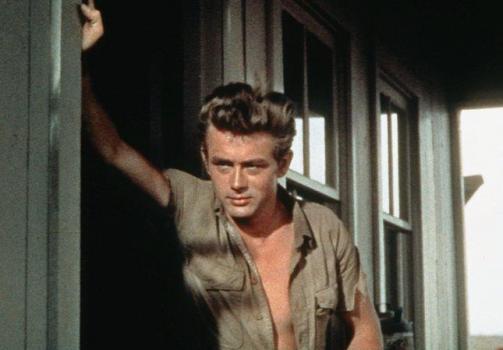The dynamics between Rock Hudson and James Dean, portrayed on screen in the 1956 film “Giant,” were not just confined to their roles.
The recent documentary, “Rock Hudson: All That Heaven Allowed,” sheds light on a less-than-amicable relationship off-screen.
Hudson openly admitted in a 1983 interview that he harbored no fondness for Dean, who, in turn, was irked by Hudson's advances, considering Hudson's efforts to conceal his s-*ual orientation from the public hypocritical.
Mark Griffin, Hudson's biographer, recollects in the Max documentary how Dean found it duplicitous that Hudson projected a heterosexual image publicly while making unwanted advances in private.
The documentary delves into Hudson's Hollywood journey, detailing his rapid ascent to stardom in the 1950s and his eventual acknowledgment of his homosexuality in his personal life, contrasting with the carefully crafted facade of heterosexuality maintained by him and his managers.
Dean, on the other hand, faced persistent speculation about his own sexuality as his fame grew, earning him the title of a “queer icon” in a 2021 Esquire essay.
Despite attempts to eschew labels, Dean engaged in relationships with both men and women, as recounted in various biographies and accounts over the years.
His resistance to conforming to societal norms added layers to his enigmatic persona.
The clash between Hudson and Dean extended beyond personal animosity to professional rivalry during the filming of “Giant.”
The 1955 epic, set against the backdrop of a Texas ranch family and the oil industry's rise, saw the two actors at odds, possibly due to their differing acting backgrounds and approaches.
Hudson's polished studio grooming juxtaposed with Dean's method acting roots led to divergent perspectives on their craft and status as movie stars.
Intriguingly, Griffin highlighted the irony of Dean judging Hudson as a hypocrite given Dean's own associations with individuals connected to the gay community in Hollywood.
The complex interplay of sexuality, fame, and perception further fueled the tension between the two actors, culminating in palpable on-set friction captured in the behind-the-scenes anecdotes.
In “Giant,” Hudson and Dean's characters mirror their real-life discord, portraying business rivals vying for Elizabeth Taylor's affections.
As the narrative unfolds, the animosity between Hudson's cattle ranch owner and Dean's ambitious ranch hand spills over into physical altercations, mirroring the underlying tensions between the stars themselves.
Despite Hudson's reluctance to speak ill of Dean posthumously in the 1983 interview, their rivalry persisted beyond Dean's tragic demise in a car crash.
Both actors, nominated for Academy Awards for their performances in “Giant,” left an indelible mark on the cinematic landscape, with their on-screen clashes paralleling the off-screen complexities that defined their relationship.
At the 1957 Oscars, their names were notably absent from the winner's announcement, underscoring the enduring legacy of their tumultuous interactions in the annals of Hollywood history.































